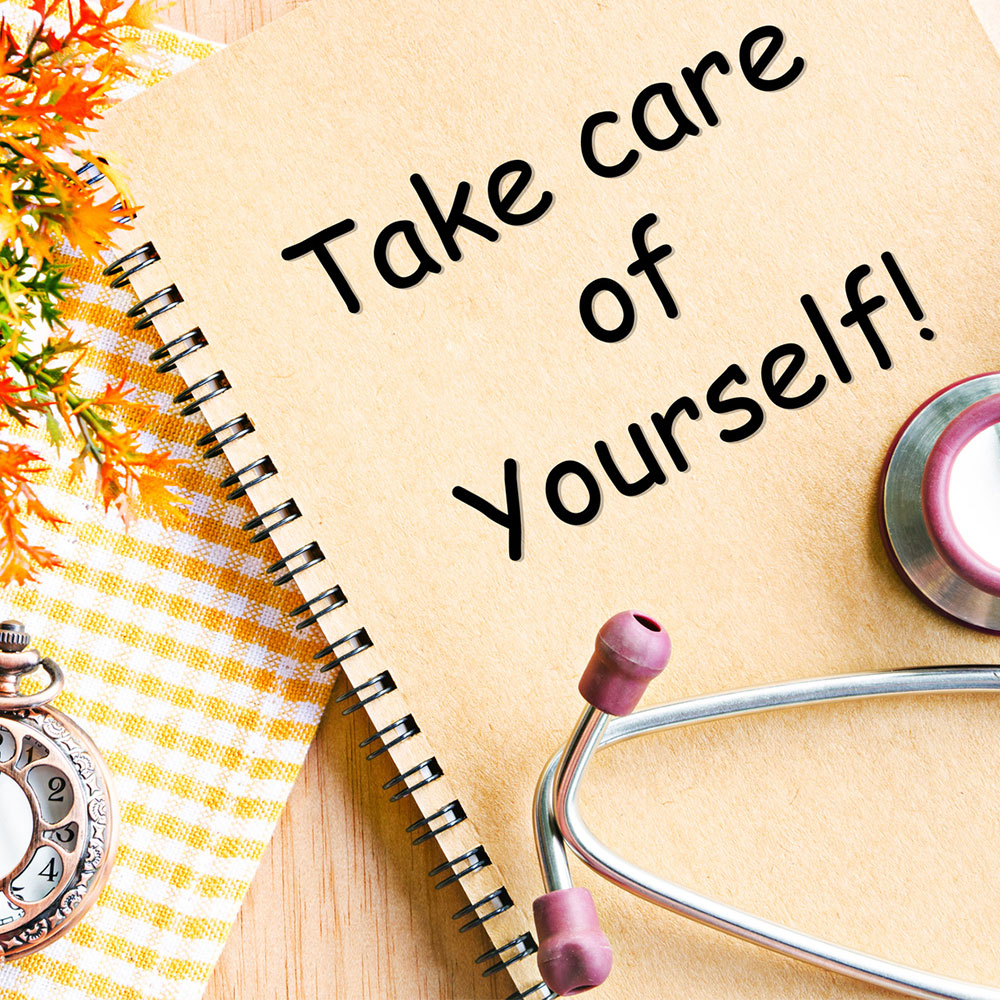7 Self-Care Tips for Getting Through Radiation

According to the World Health Organization, cancer has taken the lives of around 9.6 million people worldwide in 2018 alone – which makes it the second leading cause of death on a global scale.
And although there have been a lot of medical studies to fight and kill cancer cells, one go-to for both doctors and patients alike is radiation therapy. Radiation therapy works by using high-energy X-rays to eradicate cancer cells or hinder tumor growth and this method is usually administered by a radiation oncologist. This is a very crucial process which takes patience, optimism, and tenacity to beat it and become better.
Although these side effects vary depending on the type of radiation therapy, the dosage of radiation, the body part being treated, treatment schedules, and overall health, there are still some general side effects which can take its toll on the cancer patient. Some of them are:
- Fatigue
- Anemia
- Skin Problems
- Hair Loss (Alopecia)
- Nausea
- Vomiting
- Low Blood Cell Counts
- Diarrhea and Constipation
During this time, it’s vital for loved ones to give their all-out support to the cancer patient. However, it’s also essential to do these self-care tips for getting through radiation.
-
Eat Right
If you’ve ever gone through an operation before, your doctor might have told you to eat more protein so it heals quickly. The same goes for cancer radiation patients. They must choose protein-rich food which is easy to prepare. Take note that cancer patients might lose their appetite after radiation, so eating small, frequent meals instead of irregular, bigger portions is advisable. Avoid processed food or packaged food as much as possible. Their body should be nourished properly with the right vitamin and mineral supplements. Some high-protein food sources are:
- Chicken
- Fish
- Lean Pork
- Beef
- Lamb
- Eggs
- Cheese
- Beans
- Tofu
- Milk
- Nuts
- Chia Seeds
- Yogurt
- Chickpeas
-
Get More Vitamin and Mineral Supplements
Vitamins and minerals are critical components needed by the body. They aid the body in a lot of developmental functions such as support the bones, heal wounds, boost the immune system, convert food into energy, and repair cell damages. And since our body doesn’t naturally produce these, we can get all the recommended nutrients from an excellent diet. There are also medicinal supplements that are sold over the counter, however, it’s important to consult the attending doctor first before taking these. In the meantime, patients can get their nutrients from these sources.
Vitamin Sources:
- Ham, watermelon, soymilk, acorn squash (B-1)
- Yogurt, milk, cheese, whole grains, cereals (B-2)
- Poultry, meat, fish, mushrooms, potatoes (B-3)
- Whole grains, broccoli, avocados (B-5)
- Legumes, meat, poultry, soy products, bananas (B-6)
- Soybeans, fish, eggs, whole grains (B-7)
- Asparagus, broccoli, spinach, chickpeas, orange juice (B-9)
- Fortified soymilk, cereals, meat, fish, poultry, legumes (B-12)
- Citrus fruits, bell peppers, strawberries, tomatoes, Brussel sprouts (Vitamin C)
- Liver, beef, shrimp, fortified milk, sweet potatoes, carrots (Vitamin A)
- Fatty fish, milk, cereal (Vitamin D)
- Nuts, whole grains, leafy green vegetables, vegetable oil (Vitamin E)
- Kale, broccoli, milk, spinach cabbage (Vitamin K)
Mineral Sources:
- Cheese, yogurt, salmon, leafy greens (Calcium)
- Salt (Chloride)
- Seeds, whole wheat bread, legumes, spinach, broccoli (Magnesium)
- Bananas, other fruits, grains, milk (Potassium)
- Soy sauce, salt, vegetables (Sodium)
- Nuts, cheese, meat, poultry (Chromium)
- Whole grain products, prunes, nuts, shellfish (Copper)
- Teas, fish (Flouride)
- Seafood, iodized salt (Iodine)
- Eggs, poultry, red meat, fruits (Iron)
- Tea, nuts, whole grains, legumes (Manganese)
- Walnuts, seafood, entrails (Selenium)
- Whole grains, meat, shellfish (Zinc)
-
Relaxing Therapies
It’s no surprise that stress is also a major culprit of deteriorating health. Stress lowers our immune system hence, inviting more physical issues and diseases. After radiation, it’s not only the physical health that suffers but also the mental health – if not taken care of properly. Other cancer patients have resorted to stress-free therapies that stabilize their minds and have helped them cope with some cancer side effects such as nausea, vomiting, and fatigue. Some of these therapies are worth a try:
- Massage
- Meditation
- Music Therapy
- Reflexology
- Acupuncture
- Reiki
- T’ai Chi
- Yoga
-
Drink Plenty of Hydrating Fluids
Some medications can cause constipation. While it’s not advisable to eat fiber-rich food at extensive amounts, it’s very important to drink a lot of water and other fluids to help with constipation. Also, radiation patients will likely experience a dry mouth or a sore throat, crunching some ice cubes will usually do the trick. In addition, try eating smaller meals and include some snacks in between to avoid nausea and to give the stomach some time to adjust gradually.
-
Increase Fiber Intake Slowly
During the initial phase of radiation therapy, low-fiber and bland food are advised by the doctor. This is to lessen side effects such as diarrhea and vomiting. Furthermore, refrain from fatty, spicy, and sugar-laden food as much as possible. After a while, slowly increase the fiber intake by eating plenty of fruits and vegetables.
-
Protect the Treated Area
The skin may look sunburned after a radiation therapy which may even lead to blisters and peeling. There’s nothing to worry as that’s extremely normal. Take care of the treated skin. Always moisturize and consult your doctor as to which type of moisturizing creams to use. Never shave, scrub, or use soap on the treated area. Skip the beach trips for now. If for some reason, the sun is unavoidable, it’s better to ask the doctor if sunscreen is acceptable. The treated area is relatively sensitive to heat or cold so protect it all the time by avoiding ice packs, hot tubs, heating pads, and saunas.
-
Squeeze in a Daily Exercise
Now is the time to strengthen the immune system to overcome radiation therapies. Exercising is one way to bolster the immune system. Patients might feel weak and lethargic but squeezing in a daily exercise like walking is an excellent way to recuperate.
We all hate the big “C.” Some of our families and friends have been victims of this treacherous disease. If you are one of them, don’t lose hope. There are a lot of communities that are willing to support you. The best thing to do now is to be patient and do these self-care tips to get through radiation.

Author Bio:
Sarah Brooks, driven by the passion for blogging, writes about health, beauty, fashion, food, travel and more. She loves to spend her time travelling. She also blogs at KemperMedical, one of the leading national and global distributor of premium medical products including radiation protection products and radiology/ medical imaging supplies.